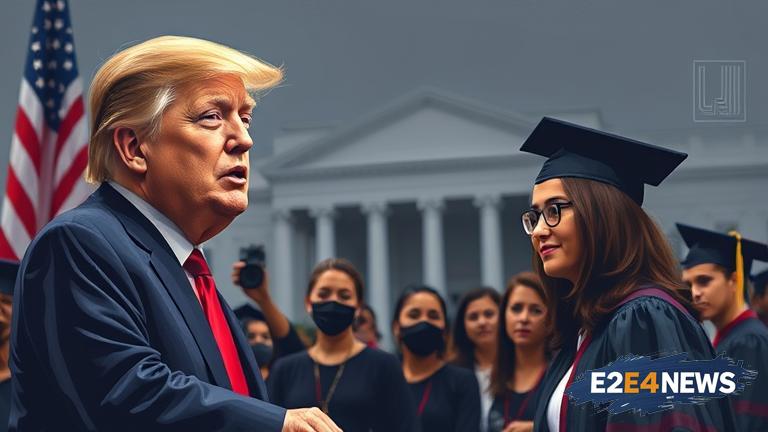The Trump administration has recently implemented a policy change that discontinues the provision of free tuition to undocumented immigrants. This decision is part of a broader initiative to enforce existing immigration laws and ensure that taxpayer funds are utilized responsibly. The policy affects students who are in the United States without legal status, many of whom have been benefiting from free tuition programs. Proponents of the change argue that it prioritizes the education of U.S. citizens and legal residents, aligning with the administration’s focus on immigration enforcement. Critics, however, express concern that this decision unfairly penalizes students who were brought to the U.S. as minors and have grown up in American schools. The move has sparked debate over issues of education access, immigration rights, and the role of government in supporting undocumented individuals. Supporters emphasize the importance of maintaining legal boundaries and ensuring that public resources benefit those who are legally entitled to them. Opponents argue that education is a fundamental right and that denying access to tuition assistance could harm the long-term prospects of these students. The policy change is seen as part of a larger effort by the Trump administration to address illegal immigration through various measures. While some view it as a necessary step to uphold the rule of law, others see it as a setback for social justice and equality in education. The impact of this decision is expected to be significant, affecting not only the students directly but also the broader conversation around immigration and education policies in the U.S. The administration maintains that the decision is in the best interest of the country and its legal residents. However, advocacy groups and educators have vowed to challenge the policy, arguing that it contradicts the values of inclusivity and opportunity that underpin the American education system. As the debate continues, the fate of undocumented students seeking higher education remains uncertain. The policy underscores the ongoing tensions between immigration enforcement and access to public services. It also highlights the challenges faced by undocumented students in pursuing their educational goals. The administration’s stance reflects a prioritization of legal status in determining eligibility for public benefits. This shift in policy is likely to influence future discussions on immigration and education at both the state and federal levels. In conclusion, the end of free tuition for undocumented immigrants under the Trump administration marks a significant change in how educational resources are allocated, with implications for students, institutions, and the broader society.
